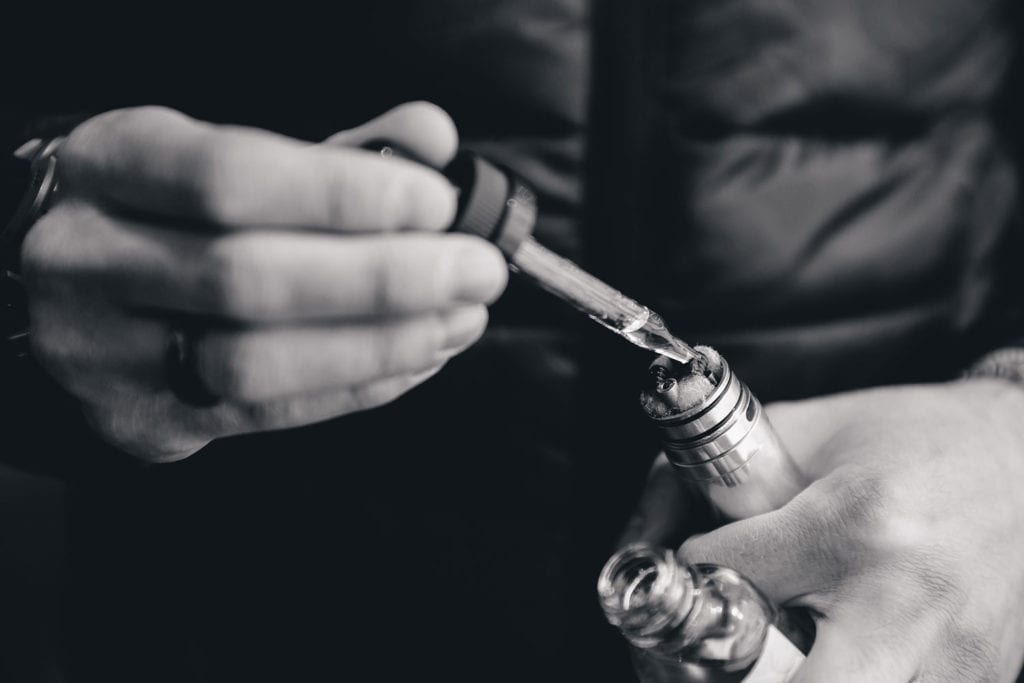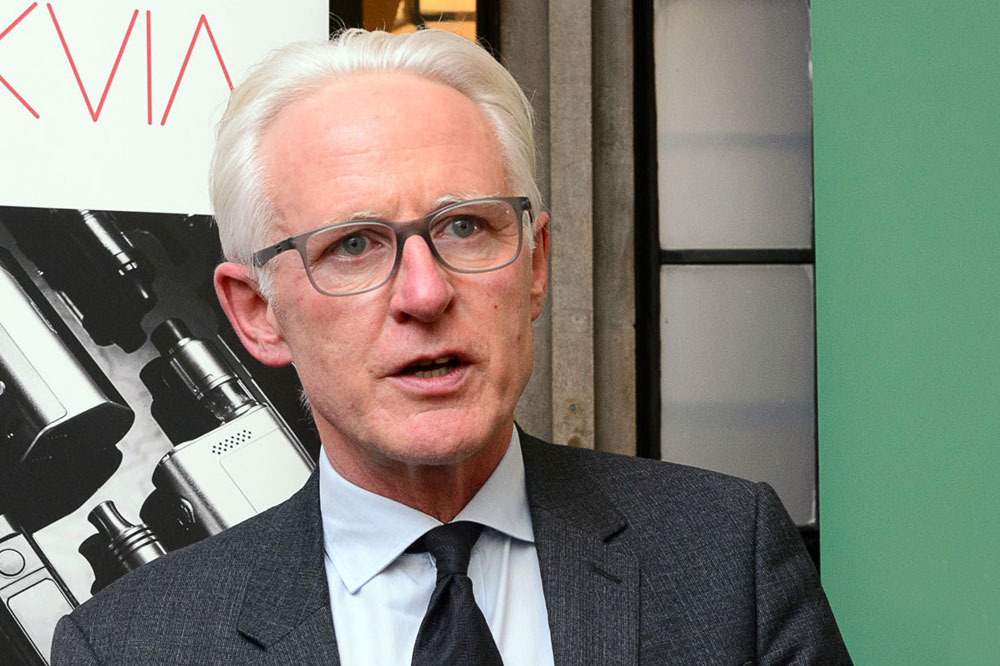
The U.S. Food and Drug Administration has stated its intent to ban menthol as a characterizing flavor in cigarettes and all characterizing flavors (including menthol) in cigars. In a statement released today, the agency said it is working toward issuing proposed product standards within the next year.
“This decision is based on clear science and evidence establishing the addictiveness and harm of these products and builds on important previous actions that banned other flavored cigarettes in 2009,” the FDA wrote in its press release.
“Banning menthol—the last allowable flavor—in cigarettes and banning all flavors in cigars will help save lives, particularly among those disproportionately affected by these deadly products,” said acting FDA Commissioner Janet Woodcock.
“With these actions, the FDA will help significantly reduce youth initiation, increase the chances of smoking cessation among current smokers and address health disparities experienced by communities of color, low-income populations and LGBTQ+ individuals, all of whom are far more likely to use these tobacco products.”
According to the FDA, there is strong evidence that a menthol ban will help people quit. “Studies show that menthol increases the appeal of tobacco and facilitates progression to regular smoking, particularly among youth and young adults,” the agency stated. “Menthol masks unpleasant flavors and harshness of tobacco products, making them easier to start using. Tobacco products with menthol can also be more addictive and harder to quit by enhancing the effects of nicotine.”
One study cited by the FDA suggests that banning menthol cigarettes in the U.S. would lead an additional 923,000 smokers to quit, including 230,000 Black Americans in the first 13 to 17 months after a ban goes into effect. An earlier study projected that about 633,000 deaths would be averted, including about 237,000 deaths of Black Americans.

These flavor standards would reduce cigarette and cigar initiation and use, reduce health disparities and promote health equity by addressing a significant and disparate source of harm.
Mitch Zeller, Director, CTP
“For far too long, certain populations, including African Americans, have been targeted and disproportionately impacted by tobacco use. Despite the tremendous progress we’ve made in getting people to stop smoking over the past 55 years, that progress hasn’t been experienced by everyone equally,” said Mitch Zeller, director of the FDA’s Center for Tobacco Products.
“These flavor standards would reduce cigarette and cigar initiation and use, reduce health disparities and promote health equity by addressing a significant and disparate source of harm. Taken together, these policies will help save lives and improve the public health of our country as we confront the leading cause of preventable disease and death.”
The FDA stressed that, if implemented, enforcement of any ban on menthol cigarettes and all flavored cigars will address only manufacturers, distributors, wholesalers, importers and retailers. “The FDA cannot and will not enforce against individual consumer possession or use of menthol cigarettes or any tobacco product,” the agency stated.
Racial justice groups have expressed concern that by outlawing menthols, the FDA would set the stage for more negative interactions between law enforcement and people of color, who smoke a disproportionate share of menthol cigarettes.
Earlier this week, the National Newspaper Publishers Association (NNPA), representing more than 200 African American-owned community newspapers from around the United States, and leading Black and Hispanic law enforcement executives, too, sent a letter urging the FDA to keep menthol cigarettes legal.
In acting on menthol, the FDA granted a citizen’s petition requesting that the agency pursue rulemaking to prohibit menthol in cigarettes, affirming its commitment to proposing such a product standard.
The 2009 Tobacco Control Act (TCA) did not include menthol in its ban on characterizing flavors in cigarettes, leaving menthol cigarettes as the only flavored combusted cigarettes still marketed in the U.S. The law instructed the FDA to further consider the issue of menthol in cigarettes.
Since then, the FDA sought input from an independent advisory committee as required by the TCA, and further demonstrated its interest by issuing an Advance Notice of Proposed Rulemaking, undertaking an independent evaluation and supporting broader research efforts—all to better understand the differences between menthol and nonmenthol cigarettes and the impact of menthol on population health.
In the U.S., it is estimated that there are nearly 18.6 million current smokers of menthol cigarettes. But use of menthol cigarettes among smokers is not uniform: Out of all Black smokers, nearly 85 percent smoke menthol cigarettes compared to 30 percent of white smokers who smoke menthols. In addition, among youth, from 2011 to 2018, declines in menthol cigarette use were observed among non-Hispanic white youth but not among non-Hispanic Black or Hispanic youth.
After the 2009 statutory ban on flavors in cigarettes other than menthol, use of flavored cigars increased dramatically, suggesting that the public health goals of the flavored cigarette ban may have been undermined by continued availability of these flavored cigars, according to the FDA.
Flavored mass-produced cigars and cigarillos can closely resemble cigarettes, pose many of the same public health problems and are disproportionately popular among youth and other populations. In 2020, non-Hispanic Black high school students reported past 30-day cigar smoking at levels twice as high as their white counterparts.
Nearly 74 percent of youth aged 12 to 17 who use cigars say they smoke cigars because they come in flavors they enjoy, according to the FDA. Among youth who have ever tried a cigar, 68 percent of cigarillo users and 56 percent of filtered cigar users report that their first cigar was a flavored product. Moreover, in 2020, more young people tried a cigar every day than the number of young people who tried a cigarette.

Pamela Kaufman and Sanath Sudarsan of Morgan Stanley said that while the absence of a proposed rule in today’s statement was “somewhat better than the market had feared,” the FDA’s plan is likely to remain an overhang for the sector. They also noted the agency did not indicate plans to ban menthol in noncombustible products such as e-cigarettes, heat-not-burn products and nicotine pouches, which could help incentivize smokers to move away from cigarettes and toward reduced-risk alternatives.
Menthol regulation will have to follow the FDA’s multi-step/multi-year rulemaking process. The next step is a preliminary rule that would be subject to a comment and review period, typically lasting 90 days. The FDA would then review stakeholder responses and publish a final rule, which would require review from the Department of Health and Human Services and the Office of Management and Budget. Once a rule is finalized, the industry would have additional time to implement the change.
Kaufman and Sudarsan expect the tobacco industry to challenge a final rule, questioning its scientific basis and stressing the risk of creating an illicit market for menthol cigarettes.



















